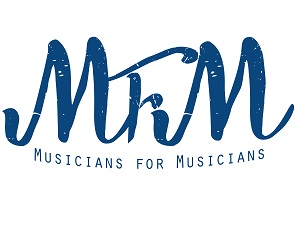Report by Dawoud Kringle
On Wednesday, December 4, 2024, MFM held its annual membership meeting. The Zoom meeting was hosted by MFM’s new Vice President, Adam Reifsteck.
The first item on the agenda was votes on the Board of Directors. Reifsteck tallied the votes on the following slate:
Adam Reifsteck (Pianist, composer, Teknofonic Record label owner, MFM webmaster, MFM podcast host)
Barry Heyman (Music attorney)
Keith Levenson (MFM’s PUA expert, composer, music director, and conductor of The Who)
Peter Wetzler (Composer, pianist, and radio host)
Mario Guarneri (Trumpet, educator, President of San Francisco’s JAZZ IN THE NEIGHBORHOOD and Independent Musicians Alliance)
Roger Blanc (Guitarist, composer, activist RMA NY Chapter President)
Sohrab Saadat Ladjevardi (Musician, composer, band leader, educator, editor, and
music activist.)
Stephen Johnson (Hudson Valley Chapter leader, guitarist and band leader)
We had 16 in-person votes and five absentee votes in favor of the board slate. This met the required quorum for approval.
David Belmont shared a synopsis of MFM’s financial report for 2024. He began by describing our financial status in 2024 as stable. Our income was $4147. Most of this came from membership dues. $505 of this came from ticket sales for Zoom events. Adding the automated membership renewal fees will bring the total to $4647 (in 2023, our annual income was $4947). MFM is spending a little more on organizational costs. We spent $627 on Facebook ad campaigns. The income from Zoom events does not entirely recoup the cost of the Facebook ads, but it looks promising. There was a reduction in hosting fees; we only spent $21 to keep our Domain Name (every third year. It costs us a little over $1000 to maintain our website). We also spent money on travel and entertainment, including the cost of hosting the recent members mix). The overall expenses for this year were $6300, down from $7991 in 2023. we have a $2059 surplus income in our bank account.
The next item on the agenda was the survey reports given by Adam Reifsteck. The survey asked our members about things such as our work experience. There were 17 responses. 76.5% responded that they have been making Music professionally for over 30 years. Regarding professional involvement in Music, 52.9% are involved full-time, 29.4% are involved part-time, and 17.6% are involved part-time but would do more if conditions were better. 70.6% describe themselves as touring musicians, as opposed to 29.4% who are not.
When queried about the top three concerns as a working musician, 76.5% were concerned with compensation, 58.8% were concerned with licensing agreements, 23.5% for healthcare, 23.5% for prioritization for local musicians, 11.8% for pensions, 11.8% for classification of employment, and 5.9% for each of the following concerns: load in time, destruction of the Music, entertainment industry, live Music versus recorded Music, discrimination, or harassment, and all of the above.
When queried about the minimum hour pay rate, 76.5% said teaching, 64.7% said performances, 64.7% said recordings and 52.9% said rehearsals.
When asked about other ways MFM could support Musicians, the responses ranged from more webinars, film, marketing, and publicity, members more proactive with networking, reaching out to musicians of other genres, finding people in different parts of the music business whose work helps our agenda (I.e., managers, lawyers, booking agents, etc.), a sharing distribution system for members recorded Music, starting a mentorship program that operates free of charge and then recruiting paying members after three sessions with the mentor, the possibility of entrepreneurial projects, and/or setting up an unprecedented business model that empowers musicians and disempowers our enemies.
Roger Blanc made a presentation of MFM’s achievements in 2024. He began by pointing out that one of his goals at the beginning of this year was for MFM to have an in-person event. This did not happen. He pointed out that the confinement to online meetings may be inevitable soon. He said that MFM should organize some in-person events—our Zoom talks and webinars for 2024 or impressive achievements for the organization. The event surrounding the life of Fela Kuti was an awe-inspiring success. He mentioned the only in-person event that MFM produced: the member mixer. The event brought many different people together and was a great success.
Blanc went on to list a series of possible goals and objectives for MFM for 2025. These included live music events (which included the inclusion of classical musicians. Blanc pointed out that things are a little slow in the Classical Music world, and collaboration with others outside that genre might be mutually advantageous). He mentioned pursuing non-musicians whose skills can benefit professional musicians (such as lawyers, Booking agents, managers, engineers, videographers, etc.). He also pointed out that we have members all over the world.
Stephen Johnson and Peter Wetzler followed up with the MFM Hudson Valley chapter report. Johnson reported they had what he described as an “expansion experience” in the Kingston area. The chapter has new members. There is also a new music venue in the Kingston area. It is a deconsecrated church transformed into a performing arts center and music school. The administrators of the venue have acquired 501(c) III status. They had a soft opening that Local MFM members attended.
The next item on the agenda was a report from Mario Guarneri on the IMA (Independent Musicians Alliance). They suffered the loss of an administrator and the administrator’s successor. They have a new PR / media person. Jazz in the neighborhood has been much more active. There are also plans in the works to produce a performance series. They are in a fundraising drive and have secured some grants, the Jazz Mobile is operational and they have approximately 80 performances scheduled for 2025 (each performance guaranteeing anywhere from $150-$200 guaranteed wage for each musician). This year, they sent out an ask letter, which pointed out that in the last 12 years, they have paid more than $1 million to local jazz musicians. Both organizations collaborate on a project with the local Musicians Union and a local folk music organization called Wipperwill Arts. This project aims to get legislation put into Bay Area city charters to make cities pay a prevailing wage and procurement standards.
Barry Heyman followed with the Music Rights Issues and Developments in 2024. He had been speaking to industry professionals regarding composition and publishing copyrights. As of the middle of 2024, the RIAA said that recorded music revenues in the United States have increased by 4% to $8.7 billion. Streaming subscriptions increased 3% to 99 million subscribers. There has been an 11% increase in music publishing to $6.2 billion. He went on to discuss the concerns regarding AI-generated content and copyright. Some people in the industry are creating tools to help generate copyright tools to help track AI-generated works, distinguish what is in copyright and what is public domain, and establish fair compensation and the use of image names and associated voice. He mentioned that he believes there are opportunities for copyright owners and holders, music publishers, and major and independent record labels to establish relationships with corporations utilizing artificial intelligence. There is also ongoing litigation regarding the various copyright issues this brings up.
Regarding streaming and artist compensation, Heyman mentioned the American Music Fairness Act and its attempt to provide payments for performing recordings on terrestrial radio. He also offered a discourse about the various contours of music catalog sales. He brought up social media as a discovery tool for Music and a means of connecting directly with fans. He mentioned that Universal Music Group and other companies did not renew their licensing deal with TikTok. And Merlin did not reach an agreement with TikTok, meaning that individual labels would have to agree with TikTok. He also predicted that Music on social media platforms could become a source of revenue. Finally, he brought up Spotify and its bizarre way of cross-collateralizing royalty payments.
This brought up a lengthy and nuanced discussion among the attendees regarding royalties for various forms of music presentation.
MFM president Sohrab Saadat Ladjevardi gave up a report about the official MFM podcast. The podcast was not operational until 2024 because neither Ladjevardi nor former host Dawoud Kringle could devote the necessary time to it. Nobody else wanted the responsibility. That said, Ladjevardi will attempt to host The Podcast in 2025 and already has two guests lined up. He also mentioned that he plans to be more relaxed, informal, and perhaps even experimental with the podcast format.
He thanked Banning Eyre for his World Music expertise, valuable presentations, and contributions to the advisory committee.
Ladjevardi spoke about the importance of MFM strengthening ties with other organizations that benefit professional musicians. This would improve our overhaul influence and power. He sent shoutouts to MFM members Sandra Izsadore, Duke Amayo, Peter Wetzler, and David Gilden.
Two weeks ago (as of the writing), Ladjevardi met with the president of Reservoir, an independent music publisher.
Finally, he urged MFM members to be more vocal and proactive about their ideas for progress. He also encouraged us to work collectively and individually to grow this organization and empower everyone.
Note: The meeting was videotaped. Members can get access to the video recording on the member portal.

